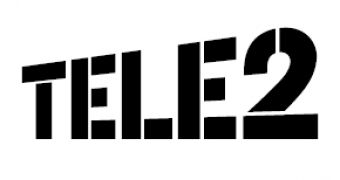One of Sweden's main telecom providers, Tele2, has announced that it will start deleting IP records that could be used to identify its customers. The company's administration claims the decision is a response to demands of the general public, which strongly disapproves of the new anti-copyright legislation that went into effect in the country on April 1.
On 26 February 2009, the Swedish government decided to implement the Directive 2004/48/EC of the European Parliament and of the Council of 29 April 2004 on the enforcement of intellectual property rights, also known as IPRED, despite strong criticism from the general public. The new legislation went into effect on the 1st of April 2009 and immediately caused a 30 percent drop in Sweden's Internet traffic.
The law basically allows courts to request ISP records directly identifying users accused of copyright infringement. However, trying to enforce this in a country whose citizens were world-renowned for their file-sharing appetite, e.g. The Pirate Bay torrent tracker, was bound to cause problems.
Internet users started looking for alternatives, such as IP-anonymizing services. Several companies offered access through VPNs with the promise that no records would be kept. This was followed by a rather small ISP called Bahnhof, announcing that it would stop storing IP records that could identify users. This is possible due to a loophole in the new law, which only says that ISPs are allowed, but not forced, to store such details.
However, Tele2's decision to adopt a similar practice of deleting records has far more serious consequences, because the company has some 600,000 costumers. "This is a strong wish from our customers and therefore we’ve decided to no longer keep records of customers’ IP addresses. We do this to strengthen the protection of customer privacy," Niclas Palmstierna, CEO of Tele2, motivated.
The problem is that this doesn't only make it impossible to identify copyright abusers, but it will severely hinder the ability of the authorities to investigate other serious Internet crimes as well. "In some cases, this will make an investigation impossible," Stefan Kronkvist, the head of the Swedish police Internet crime unit, commented for Wired.
But things are not going to remain in this state, as the Swedish government is preparing to implement yet another Directive of the European Parliament, which requires all telecommunications providers to store records for at least six months. This legislation is expected to come into effect this fall.

 14 DAY TRIAL //
14 DAY TRIAL //